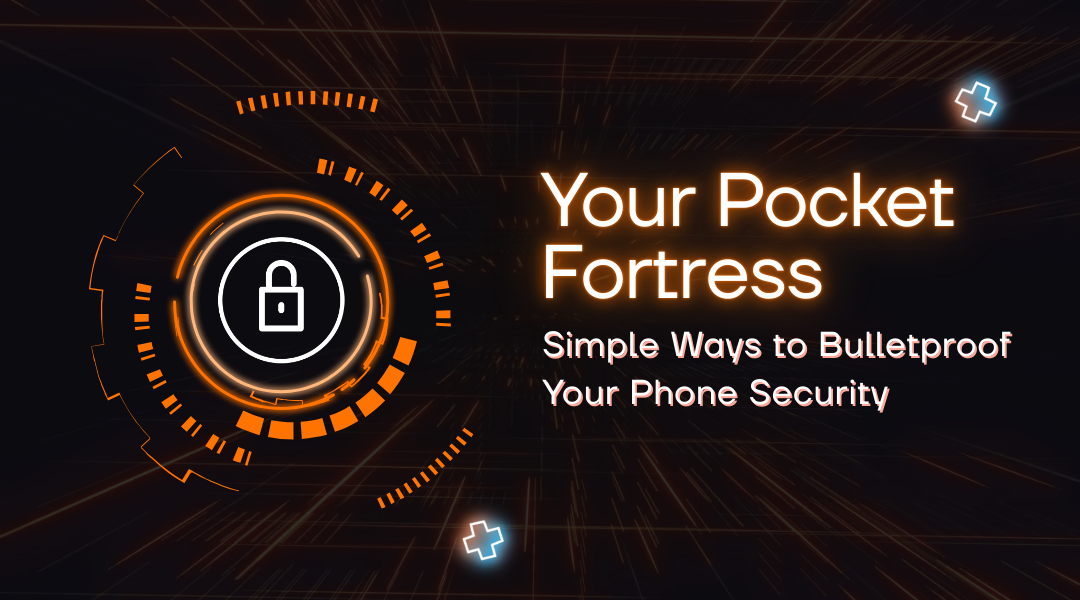Let’s face it – your phone knows more about you than your best friend. It’s got your bank details, private messages, and probably that embarrassing playlist you only listen to in the shower. With scammers getting sneakier every day, here’s how to lock things down without turning into a tech expert.
Lock Screen 101: More Than Just Swiping Up
Why Your Birthday Makes a Terrible Passcode
That 4-digit PIN you’ve used since 2012? It’s about as secure as a screen door on a submarine.
- The new rules:
- Six digits minimum (better yet, use a phrase)
- No obvious sequences (123456 gets hacked in seconds)
- Mix numbers with letters if your phone allows it
Real wake-up call: A stolen phone in Chicago was unlocked because the thief guessed “1987” – the owner’s birth year visible on their Facebook profile.
Face ID & Fingerprint Tricks They Don’t Tell You
Biometrics are great until they’re not:
- Nighttime vulnerability: Some facial recognition systems can be fooled in low light
- The “panic press”: On iPhones, quickly pressing power 5 times disables Face ID
- Multiple fingerprints: Register your non-dominant thumb for when you’re holding coffee
App Permissions: The Silent Data Vampires
Why Does a Flashlight Need Your Contacts?
You’d be shocked what apps try to sneak past you:
- Recent offenders:
- A popular wallpaper app tracking user locations 24/7
- Keyboard apps caught sending everything you type to servers
- Fitness apps selling health data to insurance brokers
The purge method:
- Go to Settings > Apps
- Sort by “Permission”
- Nuke anything suspicious
Pro tip: That free QR scanner app with 5 downloads? Probably not worth your entire contact list.
The Dark Side of Free Wi-Fi
Airport Wi-Fi Isn’t Just Slow – It’s Dangerous
Public networks are hacker playgrounds:
- New scams to watch for:
- Fake “Airport_Free_WiFi” hotspots that clone the real one
- “Please update your browser” pop-ups that install malware
- Hotel networks that stay logged in after you check out
Safe browsing habits:
✔️ Always ask “Do I really need to log in right now?”
✔️ Use your mobile data for banking
✔️ If you must connect, stick to reading news sites
Horror story: A lawyer lost client files when hackers intercepted his laptop sync over coffee shop Wi-Fi last month.
Text Message Traps
That “FedEx” Message Isn’t From FedEx
SMiShing (SMS phishing) is exploding:
- Current scams circulating:
- “Your voicemail is full” with a link
- “Your Apple ID has been locked”
- “Confirm your Netflix payment” when you don’t even have Netflix
Spot the fakes:
- Check the sender number (official messages come from shortcodes)
- Look for typos in the web address
- Never call back numbers in suspicious texts
Clever defense: Add known scam numbers to your contacts as “SCAM ALERT” so you’ll recognize them.
When Good Apps Go Bad
Even Play Store Apps Can Be Wolves in Sheep’s Clothing
Recent dangerous apps that slipped through:
- A “Battery Optimizer” that installed ransomware
- “Crypto Wallet” apps that drained accounts
- Fake ChatGPT apps loaded with spyware
App vetting checklist:
- Developer history (no name? red flag)
- Download count (millions = generally safer)
- Reviews (sort by recent – look for complaints)
Your Action Plan
- Today: Change your PIN to something non-obvious
- This week: Do a permission purge on 5 apps
- This month: Have a “phone security” chat with your family
Remember – phone security isn’t about living in fear. It’s about closing doors you didn’t even know were open. Spend 20 minutes now, save yourself a nightmare later.
Final thought: Your phone is the skeleton key to your entire digital life. Treat its security like you’d guard the keys to your house – because in 2024, it’s exactly that important.
